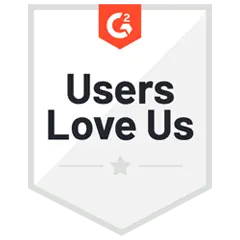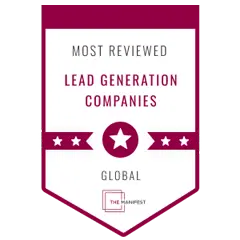Email is indispensable in B2B sales. There’s just no substitute for the speed and precision that email brings. That’s why 3 in 4 companies think email provides excellent ROI.
But let’s face it, crafting email messages isn’t exactly as exciting as getting on a sales phone call or meeting with a prospect. Emails don’t write themselves. Coming up with a compelling copy can take up a lot of time and a ton of mental effort–things which could be better spent elsewhere.
So, to save you the unnecessary trouble, we’ve hand-picked forty (40) email templates from different sources and compiled them all in a free PDF file you can download and print out for quick reference.
The examples cover most situations in B2B prospecting–from cold outreach all the way to requesting referrals. Here are a few templates you can start using right away.
Cold Outreach
In B2B sales, you often find yourself trying to reach prospects who probably have never heard about you or your company before. The singular goal of any cold outreach email is to get a prospect to hop on a phone call. So, remove anything on your message that diverts from this objective.
Take this example from Attach.io:
This is an effective cold email template for a number of reasons:
- The subject line clearly indicates both what’s in it for the prospect and what the prospect needs to do.
- The email copy is concise and benefit-focused.
- The call-to-action is clearly stated.
Aside from cold outreach emails, the PDF download below also includes templates that:
- Use different styles of prospect outreach
- Ask the recipient to point you to the right person
- Pique a prospect’s interest with personalized/researched information
Follow-ups
There are plenty of reasons why a prospect hasn’t replied to your previous email or why she hasn’t returned your voicemail. In any case, having a robust follow-up plan together with a series of follow-up emails can help you navigate the often stormy waters of B2B prospecting.
The below follow-up email example has been adapted from a template by Yesware:
This follow-up template works because:
- It identifies what the recipient has possibly missed in the previous email.
- It clearly states (outlines) what the prospect needs to do.
- The copy provides room for making additional benefit statements.
You will find more follow-up templates given in the downloadable PDF, covering situations such as:
- Unanswered phone calls and voicemails
- Inactive/unresponsive contacts
- After a phone conversation or meeting
- After tradeshows, conferences, or networking events
Related: 5 Things Every Prospecting Email Must Have Before Hitting ‘Send’
Lead Nurturing and Engagement
You need to constantly keep in touch with leads already in the pipeline so that you stay top-of-mind throughout the prospects’ buying journey. One good way to do this, of course, is through lead nurturing emails sent at various points and triggers in the sales process.
Here’s an example of a re-engagement email template from 500 Startups which works well for contacting stalled prospects:
There’s one good reason why this template stands out when it comes to reaching out to a prospect who has fallen under the radar: it gets right to the point.
There are other situations in B2B marketing that call for an appropriate lead nurturing email, and these are also covered by the examples:
- Welcoming new subscribers
- Keeping in touch
- Announcing new developments
- Sharing/featuring content
- Responding to inbound/social media leads
Referrals and Recommendations
It’s quite surprising that only 11% of salespeople ask for referrals despite the fact that 91% of clients say they’d happily give one–not to mention that referral leads tend to have the highest conversion rates. So it pays to have a can of referral email templates on hand at all times, like this one:
This fine example of a referral email comes to us courtesy of HubSpot and is quite effective because:
- It makes the referral process easier for your client (your client doesn’t have to create the referral email).
- Your client doesn’t have to explain what you (the “salesperson”) does.
- Since the email mentions both you and your client, it sets the stage for either of you to follow up.
Other related templates included:
- Asking for referrals/recommendation
- Making an introduction (for you and a client)
- Reaching out to influencers
- Leveraging your professional network
The Takeaway
We recommend using the templates in the downloadable PDF file as sources of email ideas and not as copy-and-paste messages. Test out different messaging styles and find out which works for your particular email audience.













